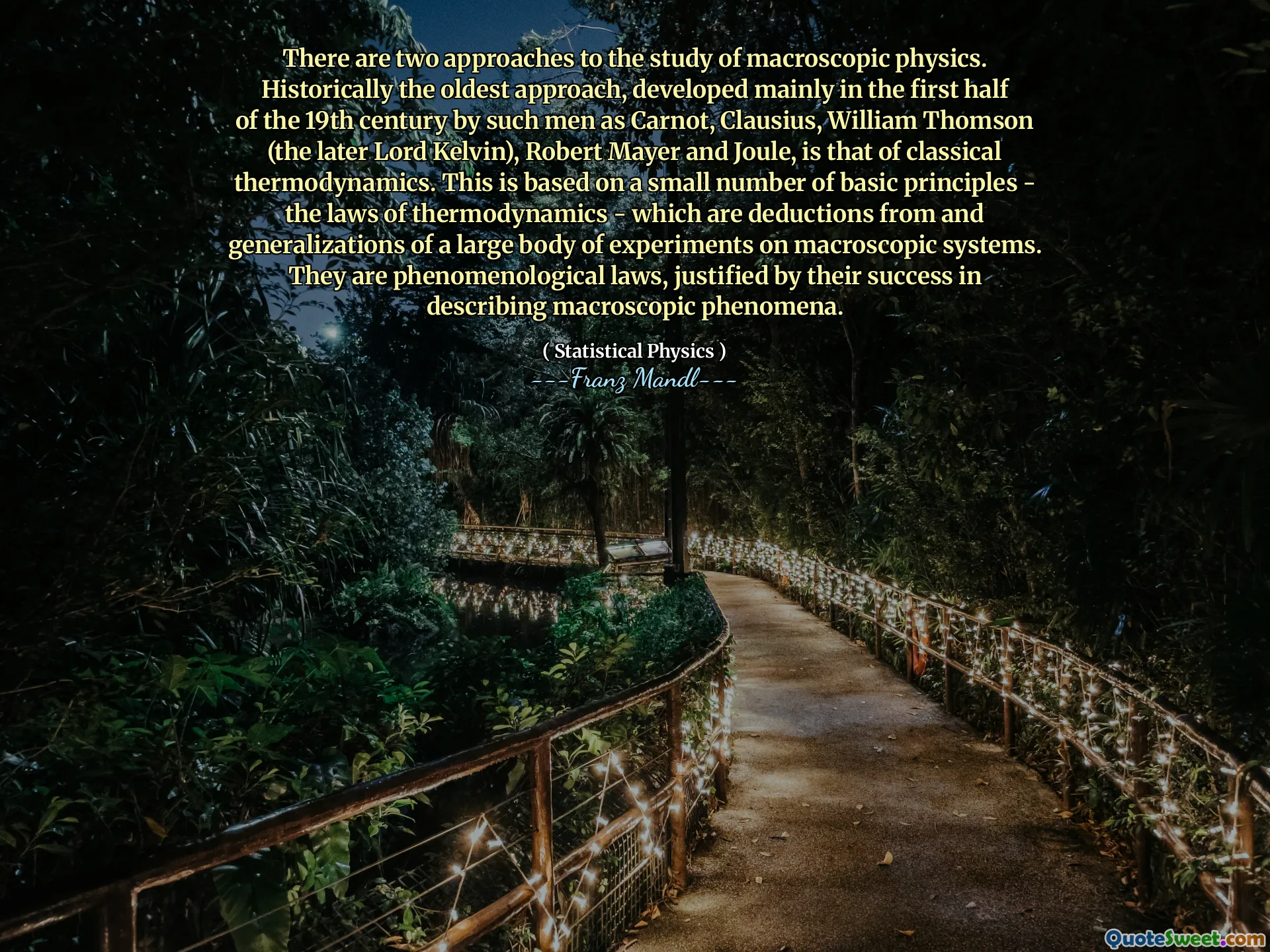
There are two approaches to the study of macroscopic physics. Historically the oldest approach, developed mainly in the first half of the 19th century by such men as Carnot, Clausius, William Thomson (the later Lord Kelvin), Robert Mayer and Joule, is that of classical thermodynamics. This is based on a small number of basic principles - the laws of thermodynamics - which are deductions from and generalizations of a large body of experiments on macroscopic systems. They are phenomenological laws, justified by their success in describing macroscopic phenomena.
The quote eloquently highlights the foundational role of classical thermodynamics in understanding macroscopic physics. It emphasizes that, during the early 19th century, scientists like Carnot, Clausius, Kelvin, Mayer, and Joule developed a coherent framework built upon a few fundamental principles—the laws of thermodynamics. These laws, derived from extensive empirical observations, serve as phenomenological guideposts that profoundly shape our comprehension of macroscopic systems without necessarily delving into microscopic details. This approach reflects an elegant balance between simplicity and empirical accuracy, providing predictive power that has endured for nearly two centuries. Its success underpins countless applications, from engines to refrigerators, and forms a cornerstone of physics education and research. One might reflect on how such phenomenological laws exemplify the scientific process: starting from observed regularities and distilled into fundamental principles that can be confidently applied across diverse phenomena. Moreover, this historical perspective demonstrates how initial empirical insights can evolve into a robust theoretical framework, laying the groundwork for subsequent developments like statistical mechanics. The enduring relevance of classical thermodynamics also prompts contemplation on its limitations and the subsequent need for more microscopic theories, but its foundational status remains undisputed. Ultimately, the quote reminds us of the power of empirical generalizations and their role in forming the bedrock of scientific understanding in physics.






